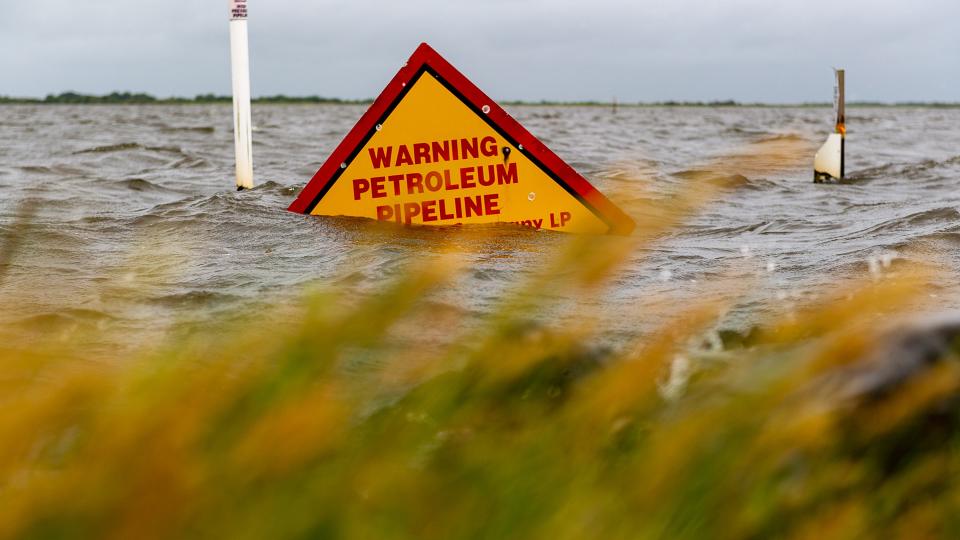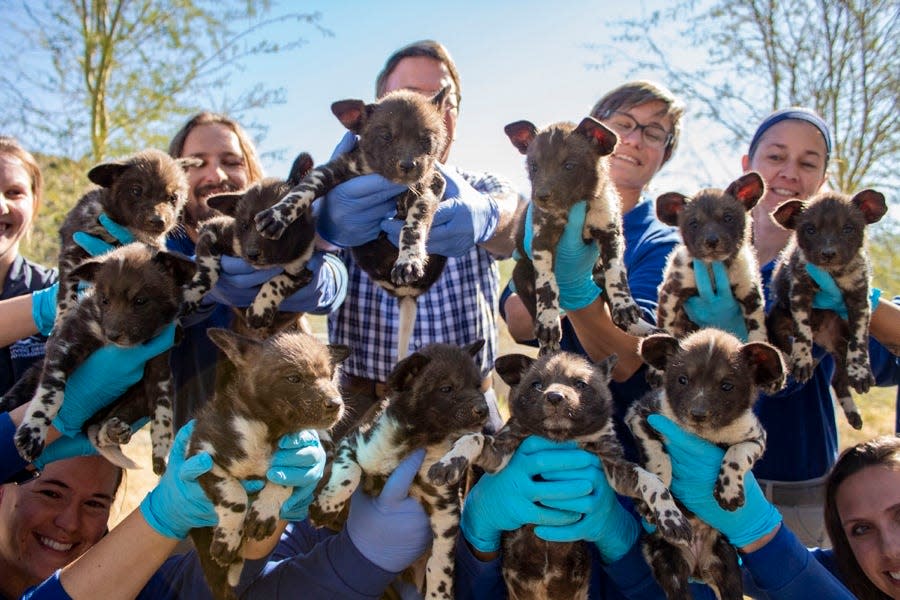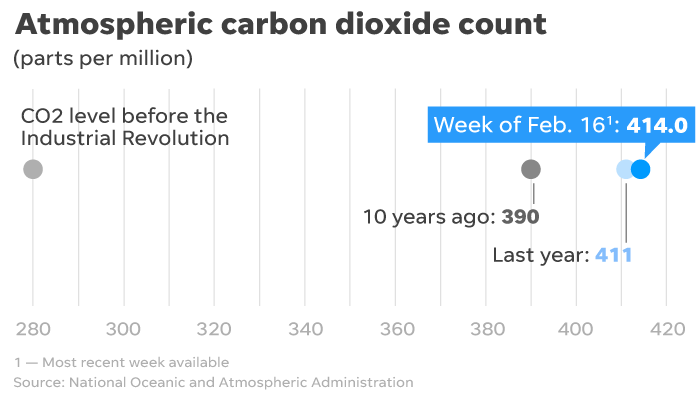Climate Point: Rebel ranchers and adorable African Wild Dog pups
Welcome to Climate Point, your weekly guide to climate, energy and environment news from across the Golden State and the country. From Palm Springs, Calif., I’m Mark Olalde.
We're on a "climate collision." Throughout the year, newspapers around the USA TODAY network will be covering the impacts of climate change that are already here and changing our daily lives. Our first story, published this week, takes you to Isle de Jean Charles in Louisiana, where the country's initial climate change refugees are watching their land disappear below the tide.

I also need to break our regularly scheduled programming to bring you coronavirus news. This growing health threat has an important environmental component, The Guardian writes, as China's massive illicit wildlife trade is believed to have kicked off the outbreak.
Here's some other important reporting....
MUST-READ STORIES
Rebellion on the Plains. In our divided age, differing opinions quickly become flashpoints, especially on the far right where xenophobia and anti-government fervor have combined to dangerous effect. But what does this have to do with the environment? A man named Ammon Bundy is the answer. He led the 2016 occupation of the Malheur National Wildlife Refuge in Oregon after crying foul that ranchers — who rely on cheap permits to graze cattle on federally owned and managed land — would have to pay at all to feed their livestock. High Country News is out with a fascinating look at Bundy and his followers and how they’re wandering the West in search of their next land rights battle.
Skipping rooftop solar. At the beginning of the year, California launched the country’s first regulations mandating every new home be built with solar panels. Less than two months later, the first alternative has already gotten a green light from the California Energy Commission. New homes around Sacramento can instead be connected to solar farms operated by the area’s municipal utility. The utility says this plan will keep some costs down while providing customers with more choice, but the rooftop solar industry decries the move as utilities' desperate attempts to remain relevant in a shifting energy landscape.
Thirsty for news. What happens when one of the biggest American environmental stories of the moment passes through news deserts, which are areas where local papers and other media outlets have disappeared? Lyndsey Gilpin takes on that meta question for Columbia Journalism Review. The Atlantic Coast Pipeline, a 42-inch-wide natural gas transportation system, is planned to wind its way through Appalachia, but about half of the 25 counties through which the pipeline would pass only have a weekly paper to provide print news.
POLITICAL CLIMATE
Oil money in Congress. A new study published in the Proceedings of the National Academy of Sciences found a relationship between campaign contributions from the fossil fuel industry and votes that did not protect the environment, The Guardian reports. In 2018 alone, oil and gas companies spent $84 million on U.S. Congressional campaigns, the analysis showed. On a perhaps related note, Republican state legislators again ran away from Salem to avoid a vote on Oregon's latest attempt to cap carbon emissions, the Oregonian reported.
A “catastrophic” threat. USA TODAY writes that a new report from the Center for Climate and Security, a nonpartisan security policy institute, found every region around the globe will face elevated threats due to climate change within the next 30 years. U.S. military missions will likely be challenged by political and social instability that's predicted to rise alongside temperatures that can lead to extreme weather events like drought. According to the study, the best solution is quickly phasing out the use of climate change-inducing fossil fuels.
Adjudicating oil. In what the Center for Biological Diversity called “a huge victory for our health and climate,” an appellate court threw out a key regulation in California’s most important oil and gas-producing county. The Desert Sun’s Janet Wilson reports that the county gave blanket approval for as many as 72,000 new fossil fuel-pumping wells to be built without further environmental review. The court ruled the county must stop issuing new permits under the relevant ordinance and come up with a new plan that more thoroughly takes into account health and environmental impacts.

WATER WORLD
A drying Colorado. As the mercury continues to rise on Earth’s thermometer, the Colorado River, the most important waterway in the western U.S., is at risk. A new study found that by 2050, a quarter of the river’s flow could disappear. Ian James with The Arizona Republic has the story.
Add it to the pile. After negotiations appeared to break down between California and the Trump administration over a controversial water transfer from Northern California to Central Valley farmers, Attorney General Xavier Becerra and Gov. Gavin Newsom announced the launch of yet another lawsuit. The federal government claims that sending more water south will not harm shrinking populations of smelt and salmon, but state officials say the move breaks environmental laws.
AND ANOTHER THING
These. Pups. Are. Adorable. I’ve said it before, and I’ll say it again. Actually engaging with issues of climate change daily or weekly is tough, so it’s important to remember what this planet’s got. The Living Desert Zoo and Gardens in the Coachella Valley is working to raise 11 newly born African Wild Dog pups (this is the second litter for the pack), an endangered species affected by habitat fragmentation and the encroachment of human activities like agriculture. Yes, The Desert Sun is your home for the latest updates on this furry brood.

Scientists agree that to maintain a livable planet, we need to reduce the atmospheric carbon dioxide concentration back to 350 ppm. We’re above that and rising dangerously. Here are the latest numbers:

That’s all for now. Don’t forget to follow along on Twitter at @MarkOlalde. You can also reach me at molalde@gannett.com. You can sign up to get Climate Point in your inbox for free here. And, if you’d like to receive a daily round-up of California news (also for free!), you can sign up for USA Today’s new In California newsletter here. Cheers.
This article originally appeared on USA TODAY: Climate Point: Rebel ranchers and adorable African Wild Dog pups

